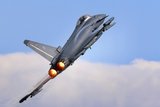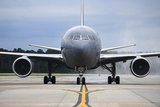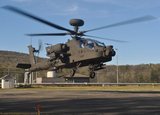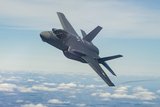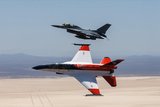Defence leaders call for strengthened supply chains and highlight security risks at Farnborough
Raytheon has added a new engine supplier to meet demand. (Image: US Air Force)
Several company heads highlighted the challenges of trying to strengthen supply chains during conversations at Farnborough as they spoke about how governments and larger companies needed to nurture and support smaller entities.
Specific supply chain problems identified included the small number of potential suppliers, a shortage of capability and inadequate security.
Elbit America president and CEO Luke Savoie pointed to a need for depth in suppliers to allow an alternative in the case of an individual supplier facing difficulties, as well as allowing for a reduction in manufacturing pace to support the overhaul of processes.
Savoie noted that a deep supply
Already have an account? Log in
Want to keep reading this article?
More from Farnborough Airshow 2024 (FIA2024) | View all news
-
![Eurofighter looks to fly integrated new systems in Typhoon next year]()
Eurofighter looks to fly integrated new systems in Typhoon next year
The first representative Eurofighter Typhoon flew in 1994 and entered operational service in 2003. Two decades later the company is working to ensure the platform’s relevance beyond the middle of the century.
-
![Embraer KC-390 puts on a show for the Mexican Air Force]()
Embraer KC-390 puts on a show for the Mexican Air Force
The KC-390 demonstrator was en route to Brazil after a display at the Farnborough Airshow in the UK.
-
![Israeli Air Force to receive first KC-46A aerial refuelling aircraft in May 2025]()
Israeli Air Force to receive first KC-46A aerial refuelling aircraft in May 2025
The delivery would mark an end to long delays in the programme with additional aircraft expected through to 2027.
-
![Boeing says next stage of Poland Apache deal is close and Chinook may be next]()
Boeing says next stage of Poland Apache deal is close and Chinook may be next
Boeing has seen a renewed demand for the Apache attack helicopter with Poland and Australia becoming customers, while India, the UK, the US, the Netherlands and Egypt have also bought new aircraft or upgraded platforms.
-
![Greece joins the F-35 Lightning II world alliance]()
Greece joins the F-35 Lightning II world alliance
Greece has signed an offer for 20 F-35 aircraft with an option on 20 more platforms.
-
![Cubic joins DARPA’s Air Combat Evolution programme for AI air combat]()
Cubic joins DARPA’s Air Combat Evolution programme for AI air combat
The company has added its SLATE technology to the manoeuvring routine of the X-62A modified F-16 aircraft.











